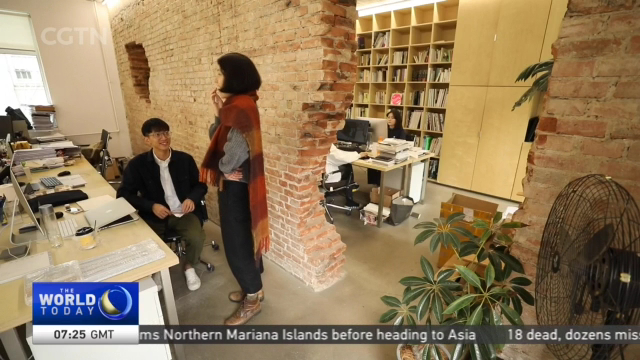
15:53, 26-Oct-2018
Hutong Life: Japanese architect's special interest in Beijing's old town
Updated
15:42, 29-Oct-2018
02:30

Beijing's hutongs represent the city's history for many residents of the Chinese capital. But for one Japanese architect, these old-style homes offer creative alternatives for futuristic living spaces. CGTN's Zhong Shi has more.
Beijing's small alleys, or "Hutongs" are all too familiar to local residents. But in eye of an architect, they add a certain charm and character to China's capital city.
SHUHEI AOYAMA, FOUNDING PARTNER B.L.U.E. ARCHITECTURE STUDIO "When I first moved into my Hutong, I, as many people, thought Hutongs represented the old and traditional Chinese lifestyle. Yet after years of living here, I now feel it's more than that. We see elements of futuristic living space."
Aoyama rose to fame in 2015, after he appeared on the TV show "Dream Home". In each episode, the show selects a problematic dwelling, and commissions an architect to renovate it. Aoyama upgraded a 35-square-meter hut into a two-story house.
SHUHEI AOYAMA, FOUNDING PARTNER B.L.U.E. ARCHITECTURE STUDIO "The cases on the show might be bad, yet there's concern for all dwellings in the Hutongs. We have upgraded seven or eight Beijing townhouses in recent years. With more experience, I now have a better understanding of Hutong areas."
Aoyama now runs an architecture studio in Beijing. The studio's work features Japanese style designs. It also offers a forum for architects to brainstorm and suggest ideas, despite their different backgrounds.
SHUHEI AOYAMA, FOUNDING PARTNER B.L.U.E. ARCHITECTURE STUDIO "The name, B.L.U.E., stands for Beijing Laboratory Urban Environment. It shows what we hope to do with this platform. With Beijing at the core, and an urban environment as the starting point, my studio will design with the attitude of doing research."
While it's challenging to set up a career in a foreign country, it also brings with it many opportunities.
SHUHEI AOYAMA, FOUNDING PARTNER B.L.U.E. ARCHITECTURE STUDIO "It gives me a unique perspective and experience that I shift from Japan to China. What interests me most is such perspective and experience could positively influence my design and creation."
For Aoyama, China is more open to change, and he is confident his innovative ways will continue to thrive here.
Zhong Shi, CGTN, Beijing.

SITEMAP
Copyright © 2018 CGTN. Beijing ICP prepared NO.16065310-3
Copyright © 2018 CGTN. Beijing ICP prepared NO.16065310-3